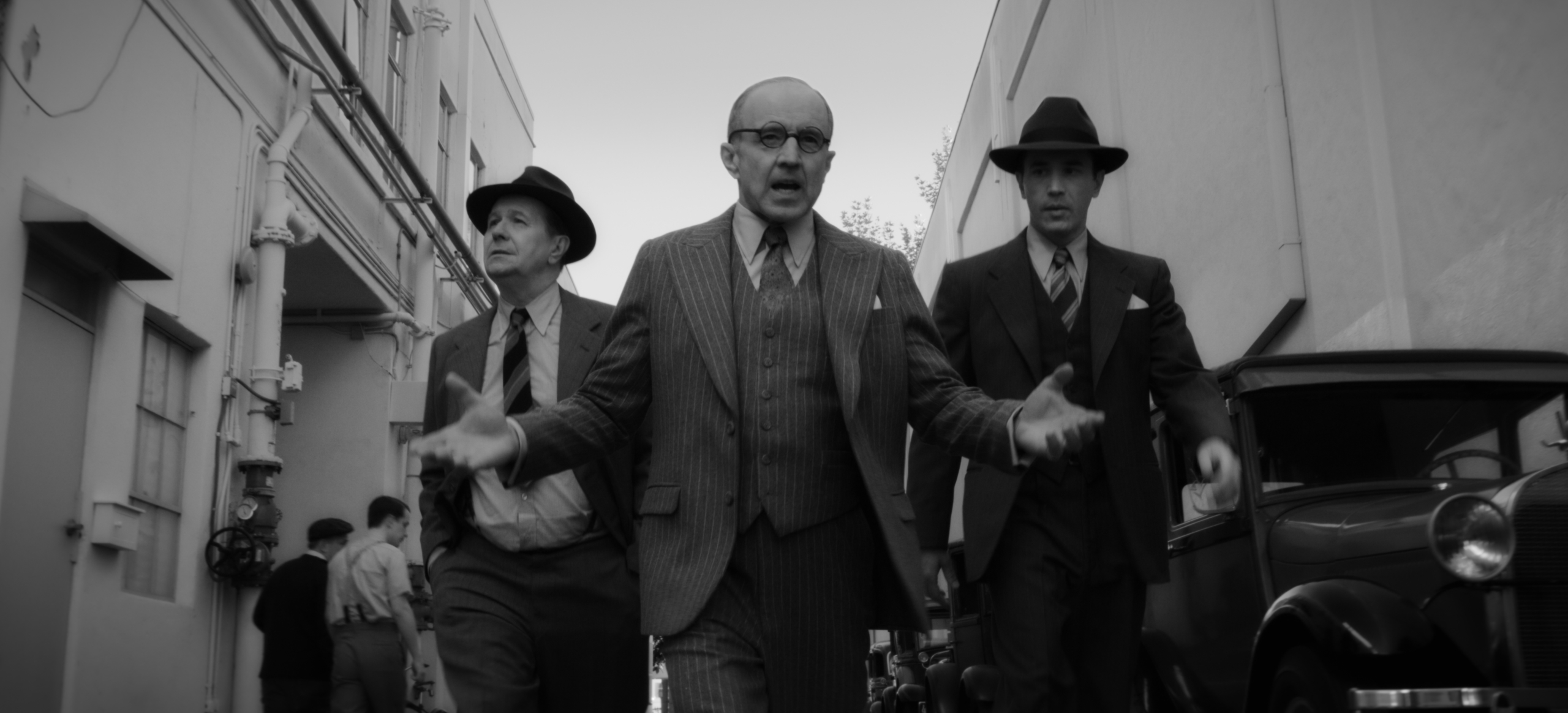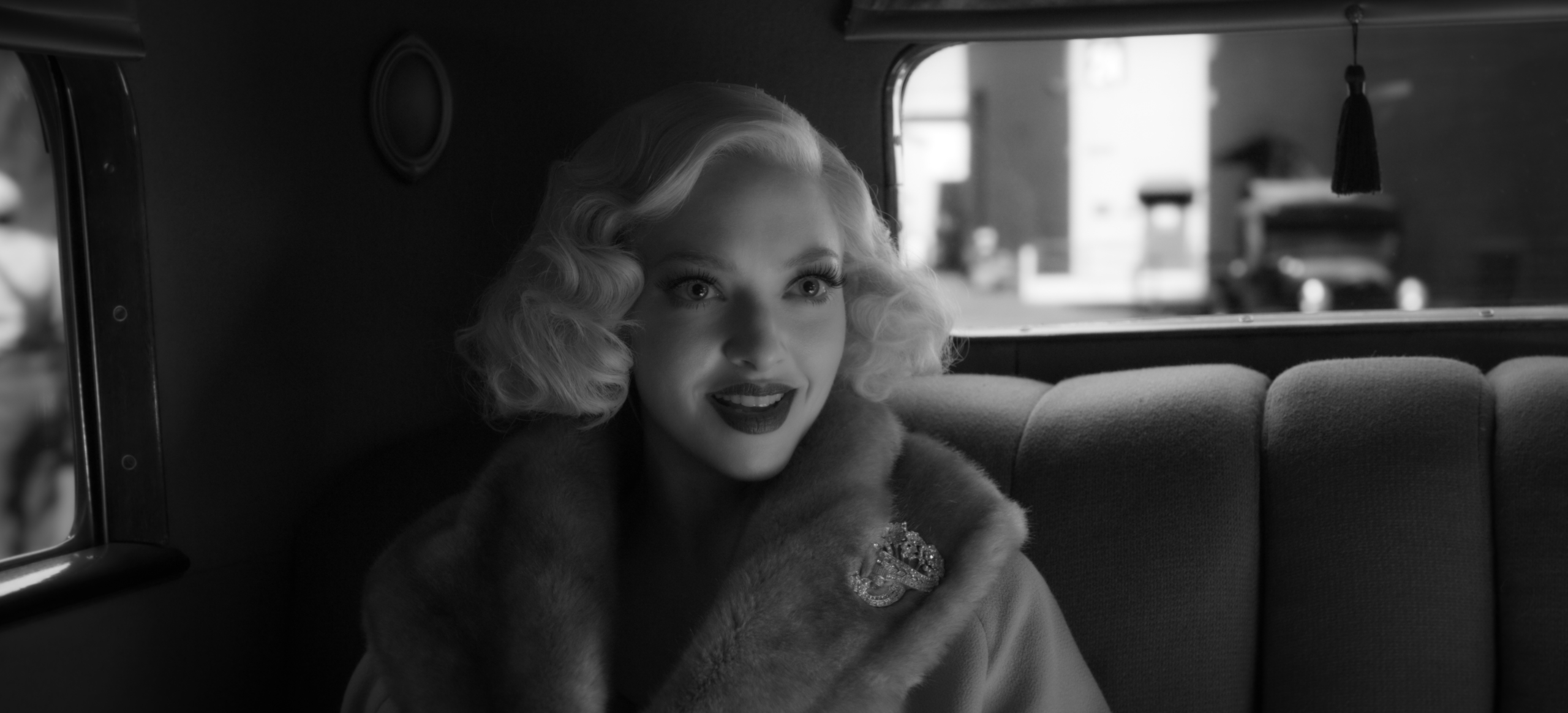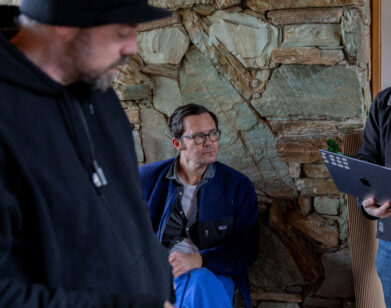exit poll
Mank Is a Salvo to Righteous Dissent
 California has no more ominous and enchanting monument than the historic Hearst Castle, nestled atop a mountain crest overlooking the Pacific shores of San Simeon. It’s impossible to pass by on Highway 1 without feeling a certain chill. Epic and Valhallan, its edifice has a strange menace, even seen from miles away. The publishing tycoon William Randolph Hearst has certainly cast a specter over the Golden State for nearly a century, his exploits and power grabs embedded in the fabric of American lore. Everyone from Gore Vidal to Ayn Rand to Orson Welles has deconstructed Hearst’s myth. With Mank, David Fincher joins their club with a film that stands out as a singular work, abandoning the aesthetic signature his name typically conjures to create something technically unique, creatively lush, and unexpectedly political.
California has no more ominous and enchanting monument than the historic Hearst Castle, nestled atop a mountain crest overlooking the Pacific shores of San Simeon. It’s impossible to pass by on Highway 1 without feeling a certain chill. Epic and Valhallan, its edifice has a strange menace, even seen from miles away. The publishing tycoon William Randolph Hearst has certainly cast a specter over the Golden State for nearly a century, his exploits and power grabs embedded in the fabric of American lore. Everyone from Gore Vidal to Ayn Rand to Orson Welles has deconstructed Hearst’s myth. With Mank, David Fincher joins their club with a film that stands out as a singular work, abandoning the aesthetic signature his name typically conjures to create something technically unique, creatively lush, and unexpectedly political.
For those who’ve followed Fincher’s work, the idea that he would make something in black-and-white about a bygone era feels inevitable. It’s a motif he’s explored everywhere from Madonna videos to GAP commercials. Originally, Fincher tried to get Mank made in the late-’90s before abandoning it to direct Panic Room. That he waited until he could give it the proper diligence and scale it warrants feels serendipitous—it’s certainly a sight to behold. There is a lot happening with this film, which invites contemplation from different angles. It’s not a typical “Old Hollywood” throwback, nor is it the sort of controversial revisionist history Pauline Kael presented in Raising Kane. It champions writers while acknowledging the moral failures that often fuel their genius. It’s a tribute to Fincher’s father, Jack, who wrote the original screenplay (and receives sole credit here), himself a writer with a certain resentment toward a business that kept him from reaching his purest potential. It’s a send-up of the collaboration process between writers and directors, something Fincher knows all too well. It investigates bureaucratic structures, through its acerbic look at the 1930s studio system, and interrogates who is rewarded within them and why. It’s a celebration and a takedown of show business from someone who, himself, has openly criticized its model. It’s also a love letter to style; everything from production design to the costumes, the cinematography, to the sound is painstakingly rendered and dreamily realized. Not only that, but it’s a clear-eyed indictment of movieland’s participation in politics, connecting a straight line from the sins of the studios through the self-destruction of its film workers to the acidic disposition in one man that led to what is commonly referred to as “the greatest film ever made.” In many ways, Mank is a salvo to righteous dissent.
We’re first introduced to Herman J. Mankiewicz, who goes by “Hermie” or “Mank” (Gary Oldman) as he settles into a casita on the edge of a ranch in North Verde, California. Having recently been injured in an automobile accident, he is remanded to a bed and tended to by a German physical therapist, Fräulein Frieda (Monika Gossmann), assisted by a typist, Rita Alexander (Lily Collins), and provided with a stockpile of tranquilizers as a replacement for booze—Mank is an alcoholic. His task is to spend 90 days crafting the first draft of a screenplay to be directed by the buzzy radio sensation Orson Welles (Tom Burke) for his motion picture debut. As he begins to craft the story of Charles Foster Kane, the film splits into dual timelines—one in which he crafts the script in the desert, and a series of flashbacks that give testimony to how Mankiewicz arrived at this tale.
Fincher takes conspicuous pleasure in rebuilding the sumptuous and detailed world of the Metro-Goldwyn-Mayer Studio of the ’30s, where we meet Mank and his brother, Joe (Tom Pelphrey, who you may recognize from his breakout performance in season three of Ozark), contract writers reporting to David O. Selznick (Toby Leonard Moore) and Louis B. Mayer (Arliss Howard). We see Mayer cut workforce salaries in half, in a performative grovel before bleachers of studio talent, and then turn around to form a donor committee for the G.O.P. campaign against rising socialist Upton Sinclair. Mank lands, mid-blackout, in a guest suite at Hearst Castle. Outside, we meet Marion Davies (Amanda Seyfried), and through a fog of recognition from social events past, Davies and Mank spark an unlikely friendship that forms the central emotive strand of the movie. William Randolph Hearst (Charles Dance) is beginning to break into “talkies” with the help of MGM brass, including Irving Thalberg (Ferdinand Kingsley), and takes an instant shine to Mank. The writer’s friendship with the magnate and Davies, his mistress, forms the basis of what would become Citizen Kane. Without delving too far into spoilers, Mank plays an inadvertent part in inspiring the studio-helmed campaign ads that would go on to play a pivotal role in a state election, the fallout of which ignites the fuse that immolates Mank’s already withering idealism into a blaze of fury.

In a film so astonishing that it rewards multiple viewings—something fans will relish when the movie drops on Netflix December 4th—a few standouts: Fincher and cinematographer Erik Messerschmidt (Mindhunter) create something novel in shooting digital and degrading the image to achieve the look of the 1940s, complete with scratches and reel-change markers. It’s a process that in the wrong hands, could have skewed gimmicky, but ever the technician, Fincher achieves something visually immersive and stunning. His direction, meanwhile, wraps that patina around a narrative that feels energetic and modern. Revisiting Citizen Kane, it’s fascinating to realize how radical and unorthodox the film was for its time. Fincher makes playful reference to it in flourishes that still strike the beholder as bold, even by today’s standards. He brings his perfectly composed shots and quicksilver performance takes to this world, particularly in some of the film’s most brilliantly written scenes of dialogue (a party conversation at Hearst’s compound arguing the difference between socialism and communism is one of the most enthralling scripted scenes in years). Laray Mayfield’s casting is ingenious from top to bottom, offering seasoned actors like Howard and Dance the chance to flex in parts that feel revelatory and seminal, and minting new stars in memorable supporting turns (even the bit players are inspired and spot-on). The period-perfect writing packs punches without getting lost in nostalgia or cliche. Seyfried, as Davies, gives a career-best performance, maximizing every moment on screen. Her Davies possesses a deep, self-aware intelligence and a vibrant spontaneity that rescues her from whatever fallout Citizen Kane might have caused. But, of course, it’s Oldman at the center who creates a dynamic and alluring antihero who holds everything together, at once suave, arrogant, sentimental, seditious, and sometimes flat-out sloppy. It’s another Oldman performance that threatens to burst through the screen. Maybe we’re accustomed to it by now, but it’s a good signature to have, nevertheless.
The politics of Mank are an interesting companion to our current affairs. In the final year of Trump’s presidential term, the story of a popular tycoon who wields new forms of media to his own political end feels eerily familiar, and the subplot of the haves exploiting the have-nots, kneecapping an ascendant socialist candidate, is both uncanny and dispiriting. Maybe our problems aren’t so new after all.
As recently as 2017, Fincher bemoaned the state of modern movies. He compared them to a bonfire, a screen for kids to sit in front of and look at their phones. (There is a line in Mank that plays for laughs, in which Selznick asks “How do we get kids into the theaters?” Mank replies “Show movies in the streets.”) That Fincher is being given the support to craft something of this scale and magnitude, which gives a chilly stare into the dark heart of filmmaking, is a credit to Netflix, and an irony: maybe those phones have finally won. As troubling as that may be, it’s Fincher’s focus on the unwieldy, self-destructive, big-mouthed, brilliant screwups, the ones who toss off genius ideas, who the business squeezes and discards, that rules the day. Mank should set bitter hearts everywhere ablaze.






